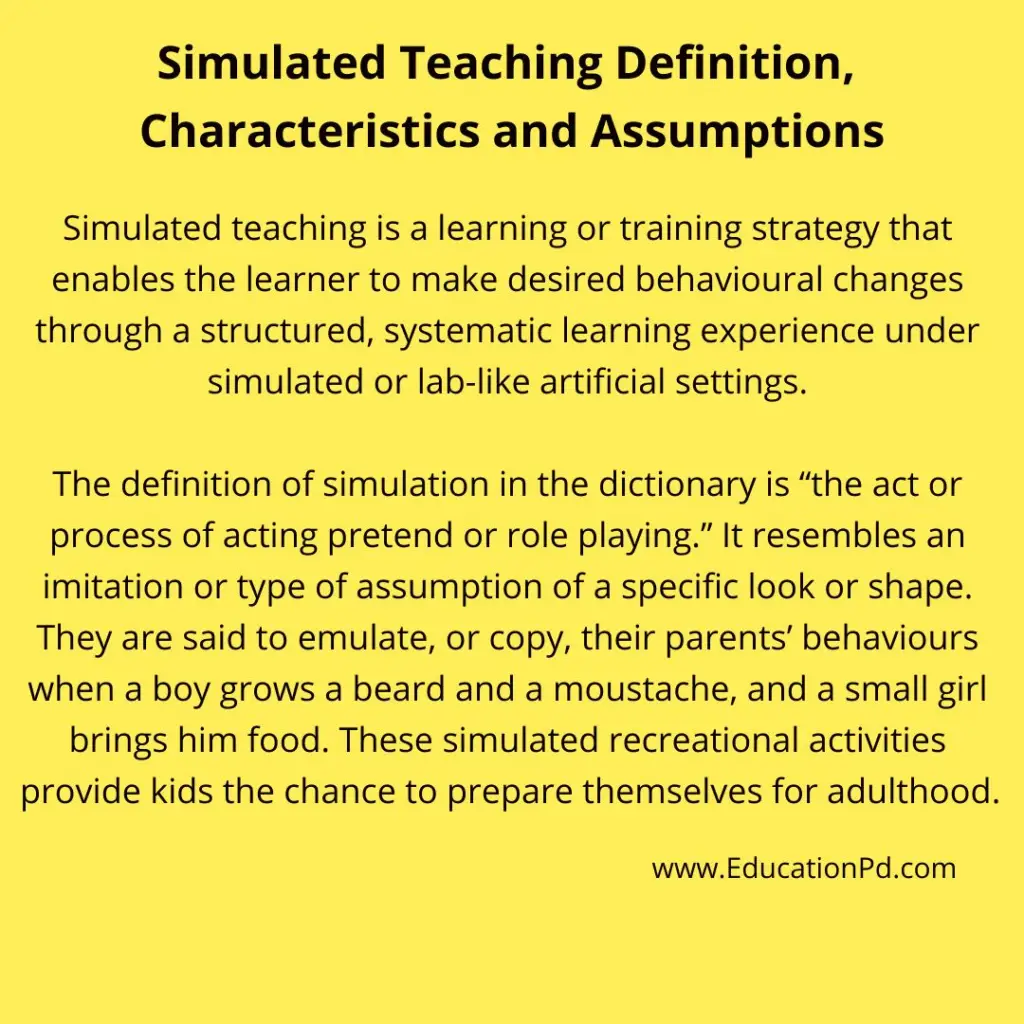Back to: Educational Technology in Education B.ed Notes, M.A Notes, IGNOU Notes
Simulated Teaching Definition, Characteristics and Assumptions
Simulated teaching is a learning or training strategy that enables the learner to make desired behavioural changes through a structured, systematic learning experience under simulated or lab-like artificial settings.
The definition of simulation in the dictionary is “the act or process of acting pretend or role playing.” It resembles an imitation or type of assumption of a specific look or shape. They are said to emulate, or copy, their parents’ behaviours when a boy grows a beard and a moustache, and a small girl brings him food. These simulated recreational activities provide kids the chance to prepare themselves for adulthood.
Simulated instruction refers to instruction that is delivered through a simulation. In this way, it communicates the application of simulation methodology in the area of education. Simulation is also known as role-playing, which is the process of education that is carried out in a fabricated setting with the aim of refining or practising particular communication skills. The underlying presumptions of simulated instruction are as follows:
- Effective teaching requires a specific set of behavioural patterns.
- Like any other talent, these behaviours may be explained, honed, and improved.
- There is a taxonomy of good teaching behaviour for teachers.
